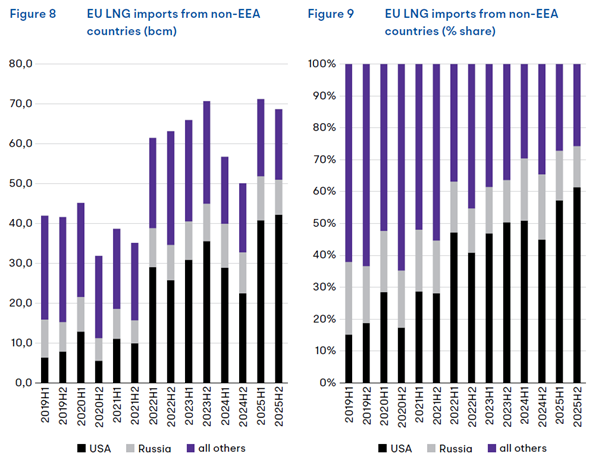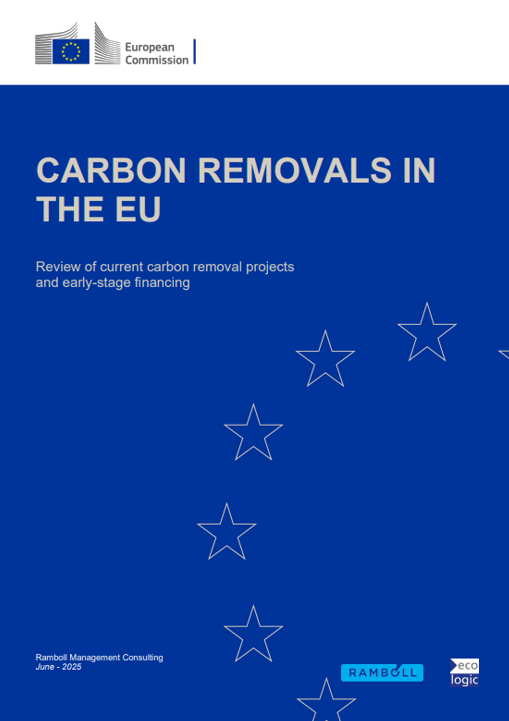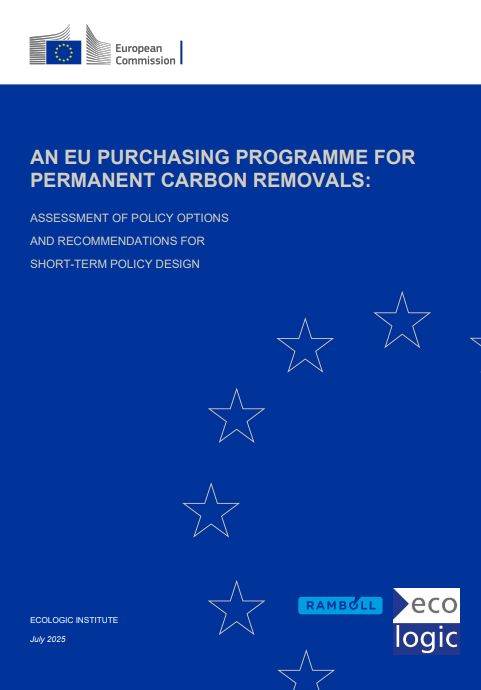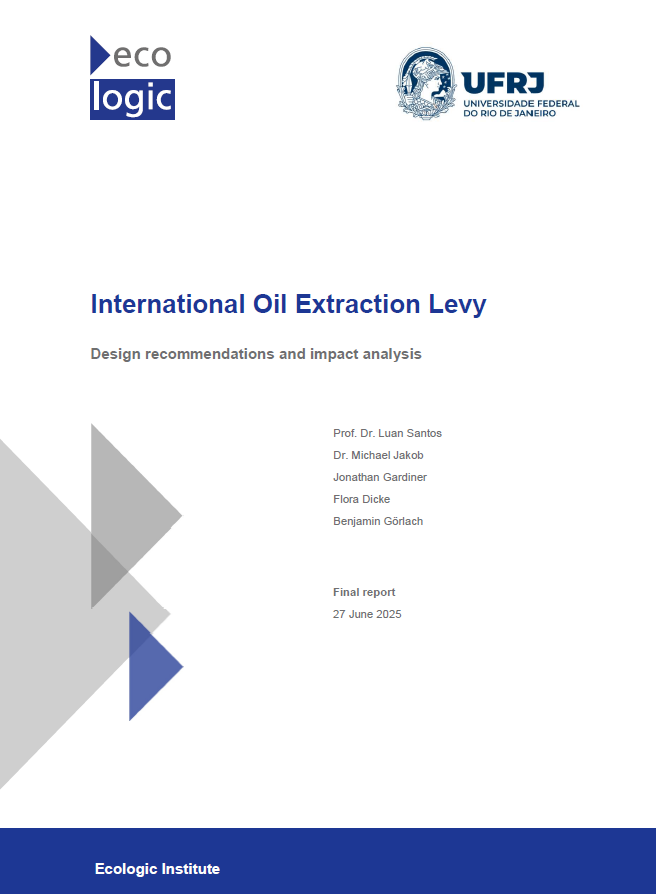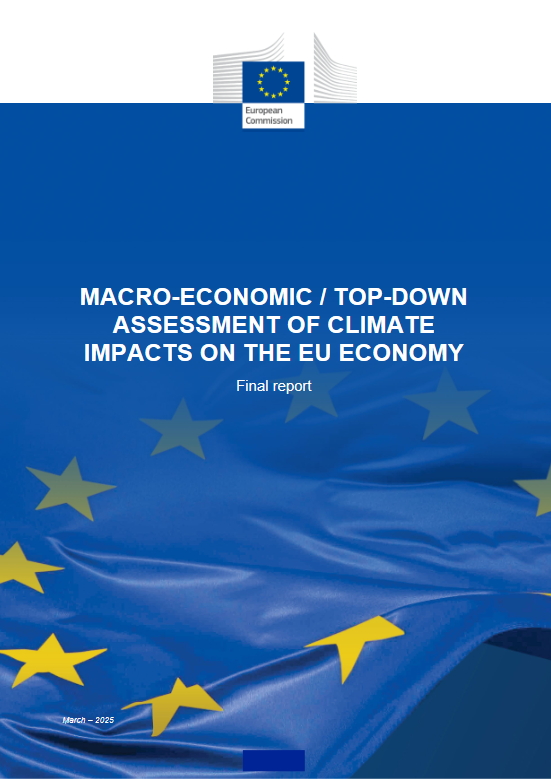Publication:Policy Brief
Publication:Report
Publication:Report
Publication:Fact Sheet
Moving from Interconnected Crises to Systemic Solutions
Resource efficiency, nature-based solutions, and systemic transformation as responses to the complexity of the triple planetary crisis
Year
Read morePublication:Report
Moving from Interconnected Crises to Systemic Solutions
Resource efficiency, nature-based solutions, and systemic transformation as responses to the complexity of the triple planetary crisis
Year
Read morePublication:Fact Sheet
Publication:Report
Inclusion of Downstream Products in CBAM
Assessment and operationalisation of relevant criteria
Year
Read morePublication:Report
Publication:Report
Carbon Removals in the EU
Review of current carbon removal projects and early-stage financing
Year
Read morePublication:Report
An EU Purchasing Programme for Permanent Carbon Removals
Assessment of policy options and recommendations for short-term policy design
Year
Read morePublication:Report
Publication:Report
Mapping Policy and Co-operative Initiative Landscapes for Systemic Change Towards a Nature-positive Economy
GoNaturePositive! Report
Year
Read morePublication:Policy Brief
Publication:Conference Paper
Perspectives on a Purchasing Programme for CRCF Permanent Carbon Removal Credits
Workshop pre-read
Year
Read morePublication:Report
Publication:Document
Deutschlands Klimaaußenpolitik: Kontext – Rückschau – Weiterentwicklung
Ariadne-Analyse
Year
Read more